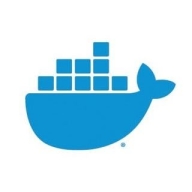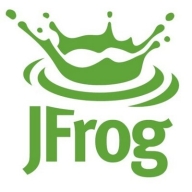

Docker and JFrog DevOps Cloud Platform are competitive in the DevOps landscape. Docker is seen as more cost-effective and well-supported, while JFrog offers a comprehensive feature set, highly valued despite its higher cost.
Features: Docker specializes in containerization, enabling efficient software development, deployment, and portability. Its lightweight architecture supports microservices and cloud-native applications. JFrog DevOps Cloud Platform includes a wide range of tools for end-to-end automation, artifact management, and security, providing robust CI/CD capabilities and seamless integration with various DevOps processes.
Ease of Deployment and Customer Service: Docker offers straightforward deployment and strong customer service, ideal for fast-paced environments. JFrog DevOps Cloud Platform's deployment is more complex due to its comprehensive toolset but is complemented by extensive documentation and support services, focusing on thorough guidance and assistance.
Pricing and ROI: Docker generally requires a lower setup investment, making it cost-effective for essential container needs with quick ROI potential. JFrog DevOps Cloud Platform demands a higher initial outlay but offers significant ROI through extensive features targeting holistic DevOps management, balancing upfront cost with long-term value.
| Product | Market Share (%) |
|---|---|
| Docker | 4.4% |
| JFrog DevOps Cloud Platform | 0.9% |
| Other | 94.7% |


| Company Size | Count |
|---|---|
| Small Business | 22 |
| Midsize Enterprise | 4 |
| Large Enterprise | 34 |
Docker is a versatile container platform used for running and deploying applications in isolated environments, ensuring consistency across development, testing, and production.
Docker offers solutions for containerizing applications, automating deployments, and managing infrastructure through its robust platform. It supports CI/CD workflows, provides a development platform for container management, and simplifies the setup by using streamlined tools. Organizations leverage Docker for building microservices, running UI applications, deploying web services, and setting up secure environments. It also facilitates managing containers via Kubernetes and creating development stacks for enhanced productivity.
What are Docker's key features?Industries implement Docker for CI/CD pipelines, scaling services, and improving resource utilization. Tech companies use Docker for building and deploying their software in isolated environments. Finance and healthcare sectors deploy applications securely, ensuring compliance with regulatory standards. Educational institutions set up consistent development environments for coding labs and training students in advanced technologies.
The JFrog DevOps Cloud Platform optimizes software development life cycles through robust artifact management, CI/CD automation, and strong version control. Notable for its security features, it supports seamless software version maintenance and vulnerability scanning. Praised for enhancing organizational efficiency, it ensures faster, secure deliveries, improving collaboration within teams.
We monitor all Software Supply Chain Security reviews to prevent fraudulent reviews and keep review quality high. We do not post reviews by company employees or direct competitors. We validate each review for authenticity via cross-reference with LinkedIn, and personal follow-up with the reviewer when necessary.